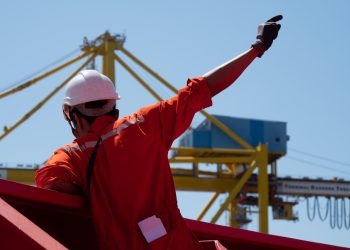ITF reacted with disappointmet for UN COP17 climate change conference
 Global union federation the ITF (International Transport Workers’ Federation) reacted with disappointment to the failure of the UN COP17 climate change conference in Durban, South Africa, to deliver any progress on climate change so far.
Global union federation the ITF (International Transport Workers’ Federation) reacted with disappointment to the failure of the UN COP17 climate change conference in Durban, South Africa, to deliver any progress on climate change so far.
Speaking from the conference, ITF climate change coordinator Alana Dave reported: “Negotiations are at a complete standstill – despite us being in a situation where emissions are still rising, the forecasts are becoming increasingly grave, and extraordinary weather conditions are destroying jobs, homes and peoples’ lives.”
She continued: “It seems as if narrow economic interests and pressure from multinationals, not least in the fossil fuel industry, are being allowed to override attempts to reach a binding agreement to protect our climate and the future of our planet.”
“Despite the enormous potential for change represented by this conference, and at a time when the International Energy Agency’s chief economist is warning that we only have five years left to make radical changes to avoid dangerous climate change, this event is looking more and more like one more wasted opportunity.”
Commenting from Durban, Asbjorn Wahl, chair of the ITF climate change working group, explained: “There is an urgent need for a new global agreement that is fair, ambitious and binding. We need a much more ambitious agenda, and we need it immediately. We need to plan a transition to a climate-resilient, low-carbon economy. Restructuring our economies and ambitious mitigation action are vital if we want to leave our children a sustainable world and a chance for social and development goals to be achieved”.
The ITF has been an active part of the ‘People’s Space’ movement at the conference, which has brought together social movements, NGOs and trade unions from around the world. The ITF has organised a two day workshop on the ‘reduce-shift-improve’ framework which is designed to reduce emissions from transport across different transport modes and world regions.
Source: ITF



























































